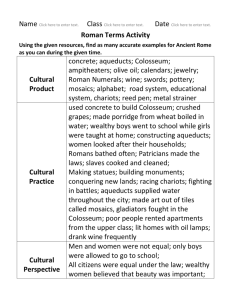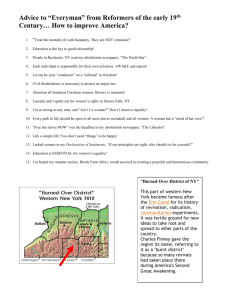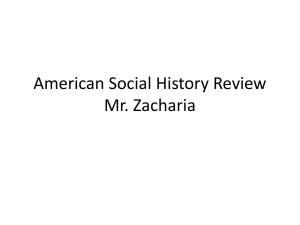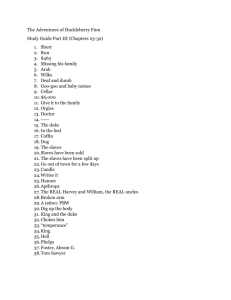Class in Ancient Rome 100 BCE–100 CE
advertisement
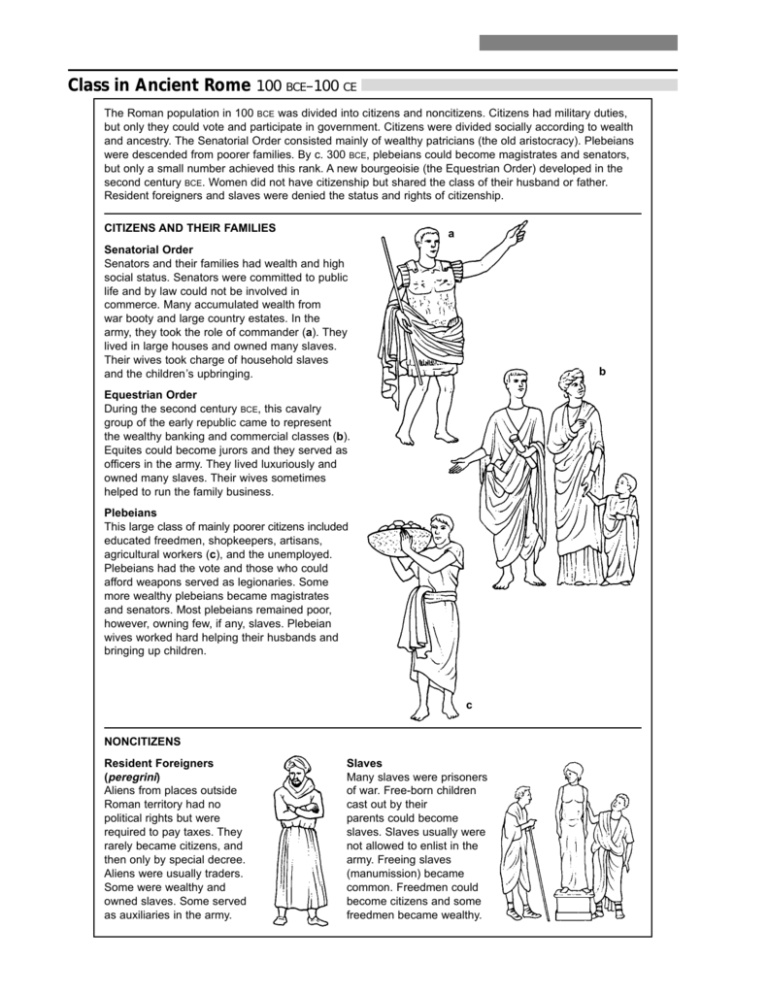
Class in Ancient Rome 100 BCE–100 CE The Roman population in 100 BCE was divided into citizens and noncitizens. Citizens had military duties, but only they could vote and participate in government. Citizens were divided socially according to wealth and ancestry. The Senatorial Order consisted mainly of wealthy patricians (the old aristocracy). Plebeians were descended from poorer families. By c. 300 BCE, plebeians could become magistrates and senators, but only a small number achieved this rank. A new bourgeoisie (the Equestrian Order) developed in the second century BCE. Women did not have citizenship but shared the class of their husband or father. Resident foreigners and slaves were denied the status and rights of citizenship. CITIZENS AND THEIR FAMILIES a Senatorial Order Senators and their families had wealth and high social status. Senators were committed to public life and by law could not be involved in commerce. Many accumulated wealth from war booty and large country estates. In the army, they took the role of commander (a). They lived in large houses and owned many slaves. Their wives took charge of household slaves and the children’s upbringing. b Equestrian Order During the second century BCE, this cavalry group of the early republic came to represent the wealthy banking and commercial classes (b). Equites could become jurors and they served as officers in the army. They lived luxuriously and owned many slaves. Their wives sometimes helped to run the family business. Plebeians This large class of mainly poorer citizens included educated freedmen, shopkeepers, artisans, agricultural workers (c), and the unemployed. Plebeians had the vote and those who could afford weapons served as legionaries. Some more wealthy plebeians became magistrates and senators. Most plebeians remained poor, however, owning few, if any, slaves. Plebeian wives worked hard helping their husbands and bringing up children. c NONCITIZENS Resident Foreigners (peregrini) Aliens from places outside Roman territory had no political rights but were required to pay taxes. They rarely became citizens, and then only by special decree. Aliens were usually traders. Some were wealthy and owned slaves. Some served as auxiliaries in the army. Slaves Many slaves were prisoners of war. Free-born children cast out by their parents could become slaves. Slaves usually were not allowed to enlist in the army. Freeing slaves (manumission) became common. Freedmen could become citizens and some freedmen became wealthy.

